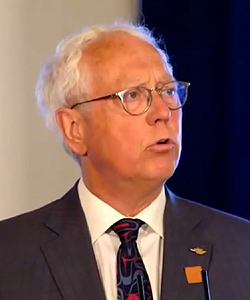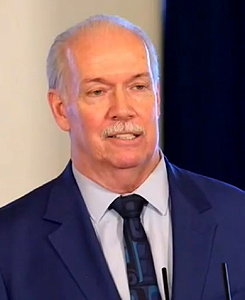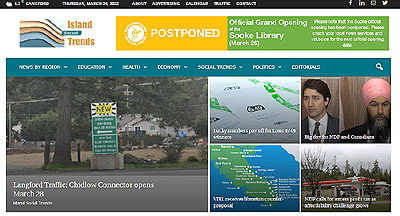Wednesday March 30, 2022 | VICTORIA, BC
by Mary P Brooke | Island Social Trends
Premier John Horgan and Murray Rankin, Minister of Indigenous Relations and Reconciliation, made an announcement today regarding the work government is doing with Indigenous Peoples in BC to implement the United Nations Declaration on the Rights of Indigenous Peoples.
Actions are intended to support changes in understandings, behaviour and systems to shift the status quo, address Indigenous-specific racism and establish new foundations of government that respect and uphold the human rights of Indigenous Peoples.
The action plan is meant to help everyone who lives in BC to understand the importance of reconciliation and how it will help the province achieve its greatest social, cultural and economic potential.
Rights fully recognized:
“The rights of Indigenous people are fully recognized,” said Rankin. Pandemics, atmospheric rivers, wildfires and the findings at Kamloops and elsewhere were listed off by Rankin as recent challenges.
“This will not be a report, like others,” said Rankin, insisting that results will be achieved, in a combined way between government and Indigenous peoples.
Ranking said it’s a mammoth job to align the laws of the province and the Indigenous nations.
Rankin referred to Premier Horgan as the “spark plug” behind the success of the work presented today.
A lot of the work “will not be done for a generation” but some of it will be done right away or in the in near future, said Rankin.
Moving issues forward:
“Colonialism is very real every single day,” said Horgan.
“A life filled with struggle and with joy,” is how Horgan referred to the experience of many Indigenous people and their leadership in making progress.
“If this doesn’t make you uncomfortable you’re not doing it right,” he said, referencing a comment by one of the Indigenous leaders today.
Today Horgan heralded the “vast experience” of Minister Rankin, who was previously a federal Member of Parliament before joining the BC team as an MLA.
“This is an exciting time, but a daunting time as well,” said Horgan, saying this sort of work “has never been done on planet Earth before”.
On November 28, 2019, BC became the first jurisdiction in Canada to implement the UN Declaration through legislation by passing the Declaration Act.
“It’s a new start and a new beginning for all of us,” the Premier said today.
Action plan:
“The action plan is the meat on the bones. How we’re going to move this forward,” said one of the Indigenous leaders today.
There is a a whole of government approach in terms of implementing the actions.
She hopes British Columbians will see themselves in the action plan.
An annual report will track progress.
Public education:
In public education will work to eliminate the occurrence of low expectations, with one measure being a higher rate of Grade 12 graduation from public schools with evidence of pursuit of excellence.
Everyone should feel safe to be able to go to school and prosper. The Ministry of Education has been meeting with the First Nations Education Steering Committee in advance of today’s announcement.
Here in the west shore, the Sooke School District SD62 school district has worked hard to improve Indigenous graduation rates, and has an Aboriginal Education section on their website.
SD62 acknowledges the traditional territories of the Coast Salish: T’Sou-ke Nation and Scia’new Nation and Nuu-chah-nulth: Pacheedaht Nation. We also recognize some of our schools reside on the traditional territory of Esquimalt Nation and Songhees Nation.
Indigenous place names:
Changing names of towns and other landmarks has been discussed by the Union of BC Municipalities and was itemized in today’s document.
As one example, the City of Powell River is looking at the possibility of changing the name of that municipality to be one of Indigenous culture.
Today Horgan says that, at present, the BC Government has to approve municipal name changes. But hopes it “would be done with as many people as possible”.
Already some progress:
Overall, the plan looks like five years ago a pretty low bar was set with the goals for this document. A lot of work has been done in the world since UNDRIP was first acclaimed in BC.
But it is not a limiting document. After five years, some measures of success might include ongoing work, such as cross-ministry work.
===== GOVERNMENT LINKS:
More information on the Declaration Act and to download a copy of the action plan (PDF)
Information on alignment of laws to the UN Declaration









